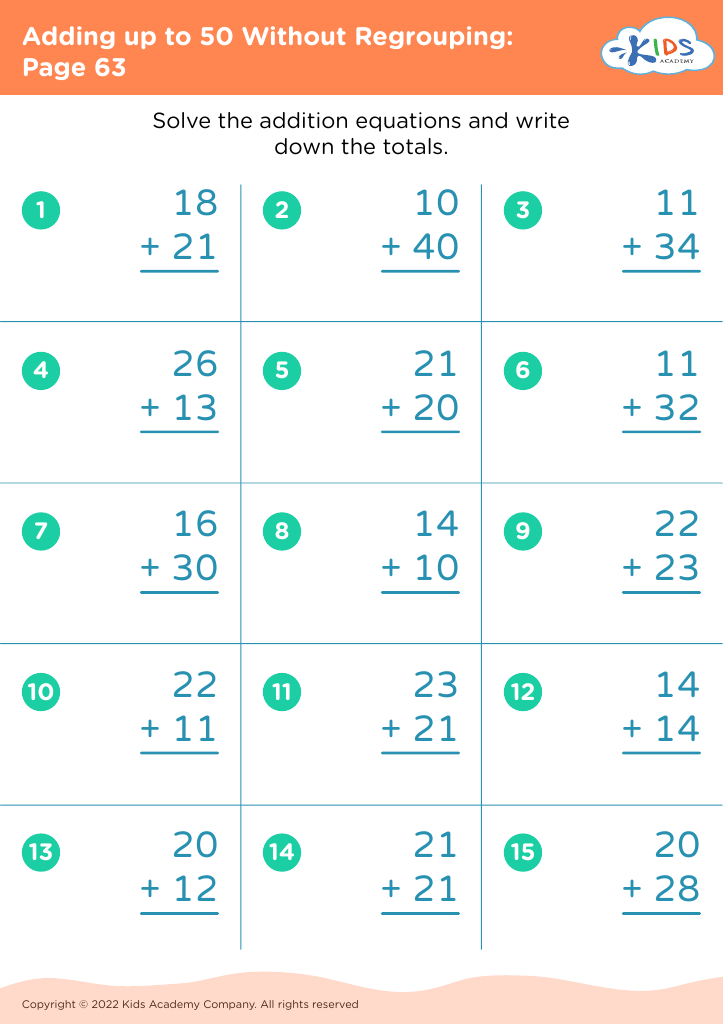Fraction Addition Adding up to 50 Worksheets for Ages 5-7
5 filtered results
-
From - To
Explore our engaging Fraction Addition Worksheets designed for children ages 5-7! These fun and interactive activities help young learners master the concept of adding fractions up to 50. With colorful illustrations and simplified exercises, your child will develop essential math skills while gaining confidence in handling fractions. Each worksheet is tailored to promote understanding through practice, ensuring a solid foundation in addition. Perfect for classroom use or at home, these resources make learning enjoyable. Let your child embark on a mathematical adventure and watch them flourish in their fraction addition skills! Download our worksheets today and start the fun!
Fractions are fundamental concepts in mathematics that serve as a building block for more advanced topics. Teaching young children about fraction addition, particularly with sums up to 50, is essential for several reasons. First, it promotes number sense, helping children to understand parts of a whole and how different quantities interact.
For children ages 5-7, introducing fractions through simple addition encourages critical thinking and problem-solving skills. It allows them to visualize and conceptualize how numbers work together, laying the groundwork for more complex mathematical operations in the future. Moreover, mastering basic fractions fosters confidence and independence in young learners, as math becomes less intimidating when they understand the basics.
Additionally, engaging with fractions can enhance a child’s ability to engage with real-world problems, such as sharing food or dividing objects, making math applicable and relevant. Parents and teachers who emphasize this content also encourage collaboration and discussion among children, which builds social skills and promotes a love for learning. Ultimately, nurturing an understanding of fractions within this age group prepares students for academic success and life-long learning while fostering an appreciation for mathematics as a whole.


















